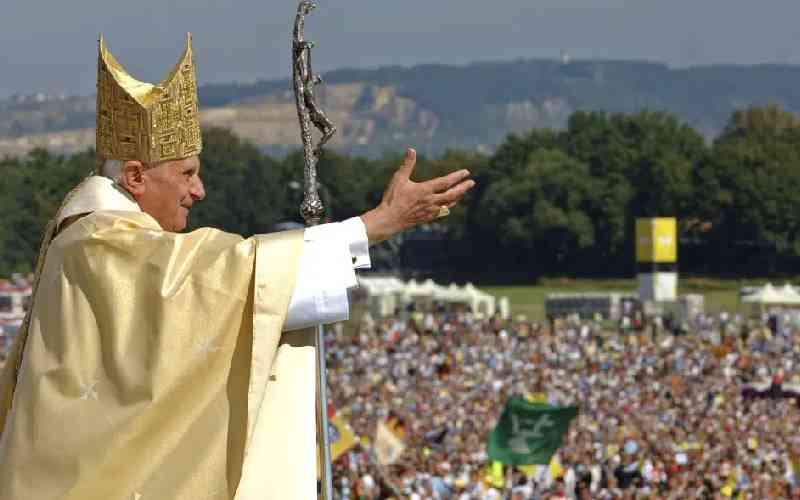×
The Standard e-Paper
Kenya’s Boldest Voice

Pope Benedict XVI leaves his homeland with a complicated legacy: pride in a German pontiff but a church deeply divided over the need for reforms in the wake of a sexual abuse scandal in which his own actions of decades ago were faulted.
Benedict has long drawn mixed reviews in Germany, a country where Christians are roughly evenly split between Catholics and Protestants and where many struggled with his conservative stance.